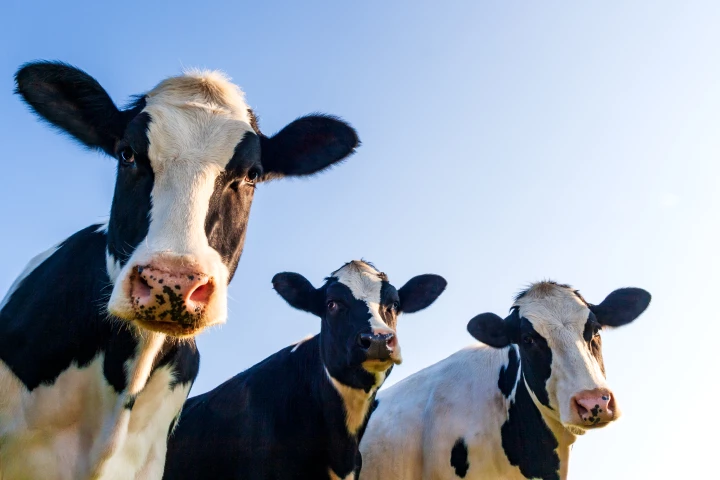Climate Solutions: Livestock
When cows raised as livestock digest their foods, microbes in their bellies create methane as a byproduct. This makes its way out of either end of the animal and into the atmosphere, where it acts as a highly potent greenhouse gas, trapping much more heat than fellow climate foe carbon dioxide. And, given the scale of agriculture and popularity of beef across the globe, this adds up to a substantial portion of total emissions, at 5.8 percent. But by supplementing their diets with everything from seaweed to tropical leaves, scientists are demonstrating interesting ways of intervening in this process, and potentially limiting the damage.
-
In the largest study of its kind, scientists have documented the seismic shift in animal size over the last 1,000 years, with domesticated species becoming larger as wildlife gets smaller. It underlines the impact of one species in particular – us.
-
Move over, cow burps. A team of scientists has shifted gears from the front to the back end of these methane-production powerhouses, using algae to curb gas emanating from their poop. It's a crap gig, but nature's best methane inhibitor is on the job.
-
Cattle are a major source of greenhouse gas emissions, mainly due to their methane-loaded burps. A detailed new study has found more evidence that feeding cows a small seaweed supplement can greatly reduce their methane emissions.
-
As tasty as cows are, their greenhouse gas emissions aren’t quite so palatable. To help clean up the agriculture industry, Burger King has now announced it will start feeding its cows a new diet that can cut methane emissions by as much as a third.
-
Scientists at Pennsylvania State University have discovered that adding a single supplement to the feed of cows can cut their methane emissions by around 25 percent, without affecting their milk-producing capacity.
-
The burning of agricultural waste and the methane that's burped up by cows are two major sources of greenhouse gases. An experimental new type of animal feed, however, is aimed at reducing both the burning and the burps.
-
Livestock like sheep and cows are responsible for huge amounts of methane emissions. Now, an international team of researchers has analyzed the gut microbes of different sheep and found clues that may help us curb the problem.
-
Scientists are looking at ways to reduce the methane emissions from cows by altering their diets. The latest development in the area comes from scientists in Mexico, who have found that supplementing cow food with leaves of tropical plants can cause a sharp decline in their gaseous output.
-
Australia's CSIRO has identified a strain of seaweed that can reduce bovine methane emissions by more than 99 percent if added to cow feed in small amounts. This could be huge for climate change, but it also has significant benefits for farmers.
-
Researchers at University College in Dublin have conducted a study on methane emissions in cattle, adding 2% fish oil to feed. This has produced a reduction in the amount of methane released by cattle through flatulence.








